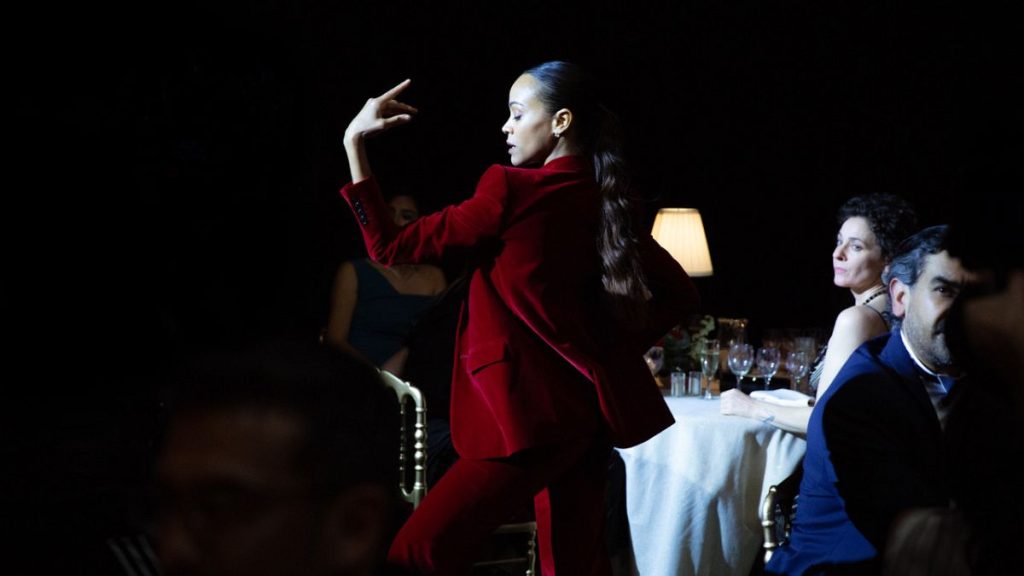The 37th European Film Awards, held in Switzerland, celebrated the best of European cinema, with Jacques Audiard’s “Emilia Pérez” dominating the evening. Mirroring the success of “Anatomy of a Fall” in the previous year, “Emilia Pérez” secured five major awards, including Best European Film, Best European Director, and Best European Screenwriter for Audiard himself. Juliette Welfling won for Best Editing, while Karla Sofía Gascón, making history as the first transgender actress to win the award, took home Best European Actress, further solidifying the film’s triumph. Gascón’s poignant acceptance speech emphasized a call for acceptance and tolerance, adding a significant moment to the evening.
The concentrated accolades for “Emilia Pérez” sparked discussion about the EFAs’ tendency to favor a single film, a recurring pattern observed with previous winners like “Triangle of Sadness” and “Anatomy of a Fall.” While the film’s merit is undeniable – a Cannes premiere with two Palme d’Or awards and France’s Oscar 2025 entry – the lack of wider recognition for other nominated films raises questions about the awards’ structure. This trend, especially in a year celebrating diversity, prompts consideration for revised rules to ensure a more balanced distribution of awards and broader recognition of European cinematic excellence. The film itself is a vibrant genre-bending musical set in Mexico, exploring themes of gender transition, cartels, and featuring captivating choreography.
Beyond “Emilia Pérez,” other notable wins included Abou Sangare’s surprise victory for Best European Actor for his powerful performance in “Souleymane’s Story.” The Best European Documentary award went to “No Other Land,” a Palestinian-Israeli co-production depicting the struggle against forced displacement. The directors’ powerful statement condemning ethnic cleansing and calling for a ceasefire in Gaza resonated strongly, prompting an audience member’s cry of “Free Palestine!” Further awards saw Gints Zilbalodis’ “Flow” win Best European Animated Film, Benjamin Ree’s “The Remarkable Life of Ibelin” take the European Young Audience Award, and Nebojša Slijepčević’s “The Man Who Could Not Remain Silent” secure Best European Short Film.
The ceremony also honored cinematic legends, with Wim Wenders receiving the Lifetime Achievement Award, presented by the European Film Academy’s new president, Juliette Binoche. Isabella Rossellini was honored with the Award for European Achievement in Cinema, presented with heartfelt humor and emotion by Ralph Fiennes. Rossellini’s acceptance speech, expressing gratitude and highlighting curiosity and fun as her driving forces, formed one of the evening’s high points. Fiennes’ presentation stood out against the slightly awkward attempts at humor by other presenters, highlighting a need for more polish in future ceremonies.
While the 2023 EFAs ran more smoothly than the previous year’s Berlin event, certain aspects detracted from the overall experience. Unnecessary cutaways featuring academy members’ film discussions and awkward attempts at humor by some presenters fell flat. Technical issues and clumsy hosting further hampered the flow of the evening, contrasting sharply with the polished presentations of awards shows like the BAFTAs, Césars, Golden Globes, and Oscars. Though European cinema boasts exceptional quality, the EFAs need refinement to match the prestige of the films being honored. Suggestions include more rehearsal, a shorter program, or perhaps even enlisting Ralph Fiennes as the sole host, to elevate the ceremony to the level of its cinematic counterparts.
The full list of winners highlights the diverse range of films celebrated at the 37th European Film Awards, from the multiple award-winning “Emilia Pérez” to thought-provoking documentaries like “No Other Land” and animated gems like “Flow.” The awards, while sparking debate about their distribution, showcase the vitality and creativity of European filmmaking. As the EFAs evolve, it’s hoped that the ceremony itself will grow to reflect the excellence and diversity of the films it honors, providing a truly fitting celebration of European cinema.














